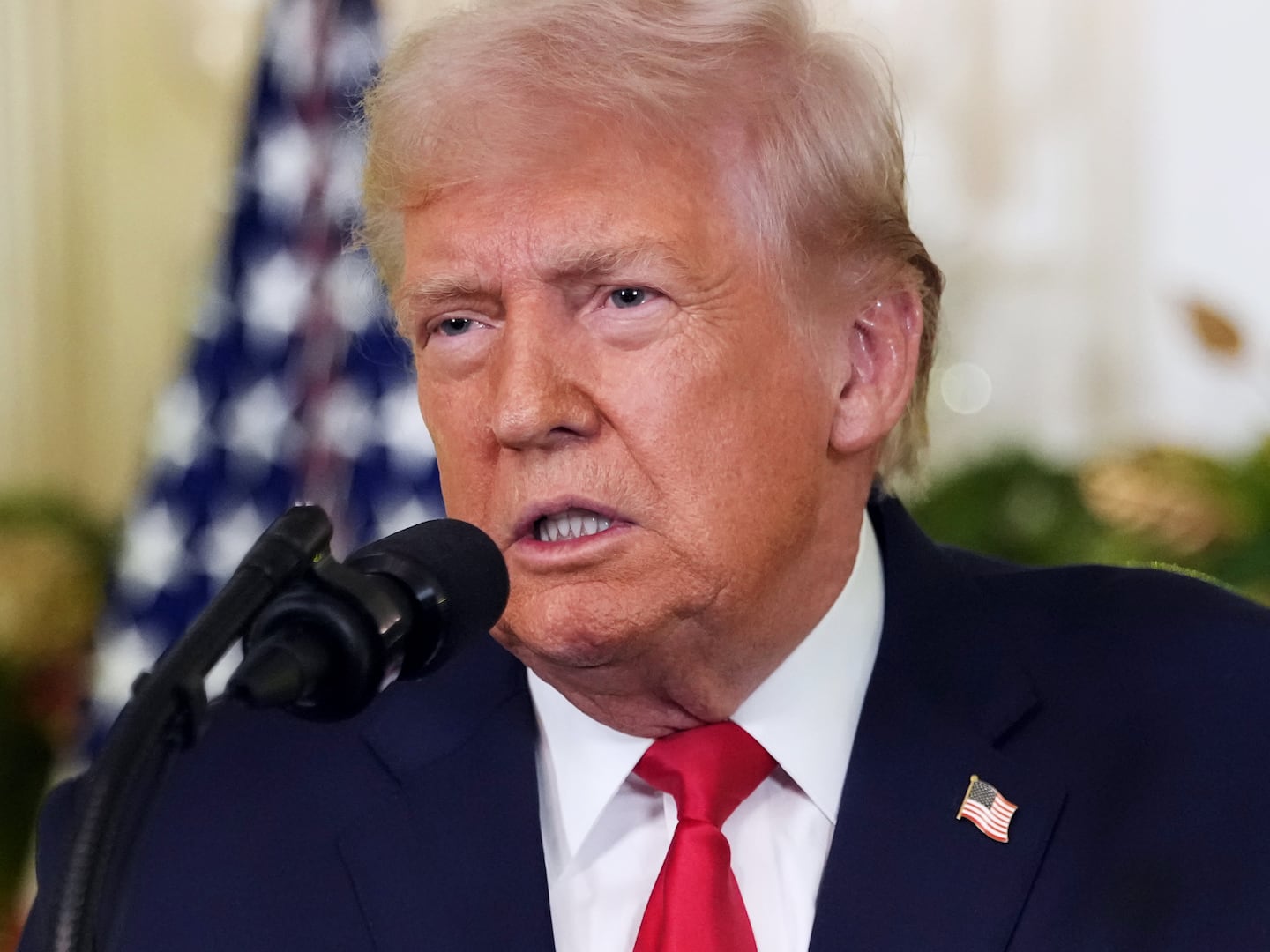Obama's chances at re-election may come down to a former firefighter from Alachua, Florida, who turned down George W. Bush's offer in 2005 to make him director of FEMA.Meet Craig Fugate, director of the Federal Emergency Management Agency, who will oversee the federal government’s response to what many are predicting will be the worst hurricane to hit the mid-Atlantic in decades.

The last time a president’s political fortunes relied so heavily on FEMA, it was a disaster for the White House. During Hurricane Katrina, the man in charge of assisting the states from Washington was Michael Browne, who was relieved of his post because of his incompetence less than two weeks after the storm hit. Fugate, now Obama’s FEMA director, is the guy Bush wanted to fill Browne’s shoes.
On a press call Monday, Fugate struck a wary tone, predicting that storm-related damage and reconstruction efforts could last through next Tuesday, when the nation heads to the polls on Election Day.
Fortunately, there are few people who are more prepared for this kind of storm than Fugate. From 2001 to 2009 he was the director of Florida’s Division of Emergency Management. In 2004, another election year, Florida was hit with four hurricanes and a tropical storm between August and September. Fugate had to replace polling stations that were damaged. At a press conference before one of the storms hit, a reporter asked what would happen if people didn’t evacuate areas Fugate said they should evacuate. “They will die,” Fugate responded with characteristic bluntness.
“He’s straight forward, he’s blunt,” said Bryan Koon, the current director of Florida Division of Emergency Management. “I would say he is probably of the same school of communications as Governor Christie in New Jersey. You get straight down to it.”
In some ways, Fugate is the anti-politician. Raised outside of Gainesville, Fugate started out as a volunteer firefighter after attending special schools for firefighting and paramedics. In 1997, he got his first big break in the emergency-response business when his state’s Division of Emergency Management hired him. In 2001, a month after the Sept. 11 attacks, then-Gov. Jeb Bush appointed him to lead the department.
The 2004 season was the new leader's first real test. Fugate has said that he learned the lesson of Hurricane Andrew in 1992 when responders in some cases did not get to the scene for three days.
In a 2008 interview with Security Management magazine Fugate said his goal was a fast response. “Coming into the 2004 hurricane season, we realized that it still seems to take about 72 hours to get stuff into an affected area. And I’m like, ‘Why can’t we do it faster?’” he said at the time. “’Well, we’ve got to wait for the locals to determine how bad it is.’ I’m like, ‘Guys, kind of think if a big hurricane is gonna hit, we know it’s going to be bad.’”
After that 2004 hurricane season, Fugate won praise from many in his field for handling the responses. His response to Hurricane Katrina is caught the attention of the Bush administration.
At the time, Fugate turned down the offer to head FEMA. When asked about the offer Monday on a conference call, Fugate said, “I work for the president right now.” He added, “What happened previously, let’s talk about that offline for another time.”
Barry Scanlon, who served as special assistant to James Lee Witt, the FEMA director under President Clinton, said it was widely known in the emergency-management world that Fugate did not want to succeed Brown at FEMA. “He didn’t think it was the right time to take that job,” says Scanlon, who is now president of the emergency-management consulting firm, Witt Associates. Scanlon stressed however, “He’s not a partisan. He is respected by Republicans and Democrats.”
For now, Fugate is focused on the coming storm. Speaking on the press call Monday, he said FEMA had already placed 600,000 liters of bottled water and 490,000 meals in areas to provide fast relief. His top concerns at this point are those people who have not evacuated coastal regions and how the Coast Guard and other responders may have to run rescue operations. He is also monitoring New York City and its subways for the storm surges and flooding as well as power outages on the East Coast.
At this point, one of Fugate’s most important jobs is to communicate to the millions of people affected by the coming storm. Koon said, “Right now I would try to tell people what was coming and what the consequences are. For individuals, you are going to lose power, your home may be flooded, the government may not be able to take care of you.”
Fugate is on the same page. He has taken to Twitter in recent days to warn the Internet of the storm. On October 27, he tweeted, “U R Ready for Hurricane #Sandy, are your family & friends? If not, don't be surprised if you have guest, send them to http://www.Ready.gov.“
On Monday, Fugate said he writes his tweets himself. He said he will tweet sometimes early in the morning, which accounts for his misspellings.





